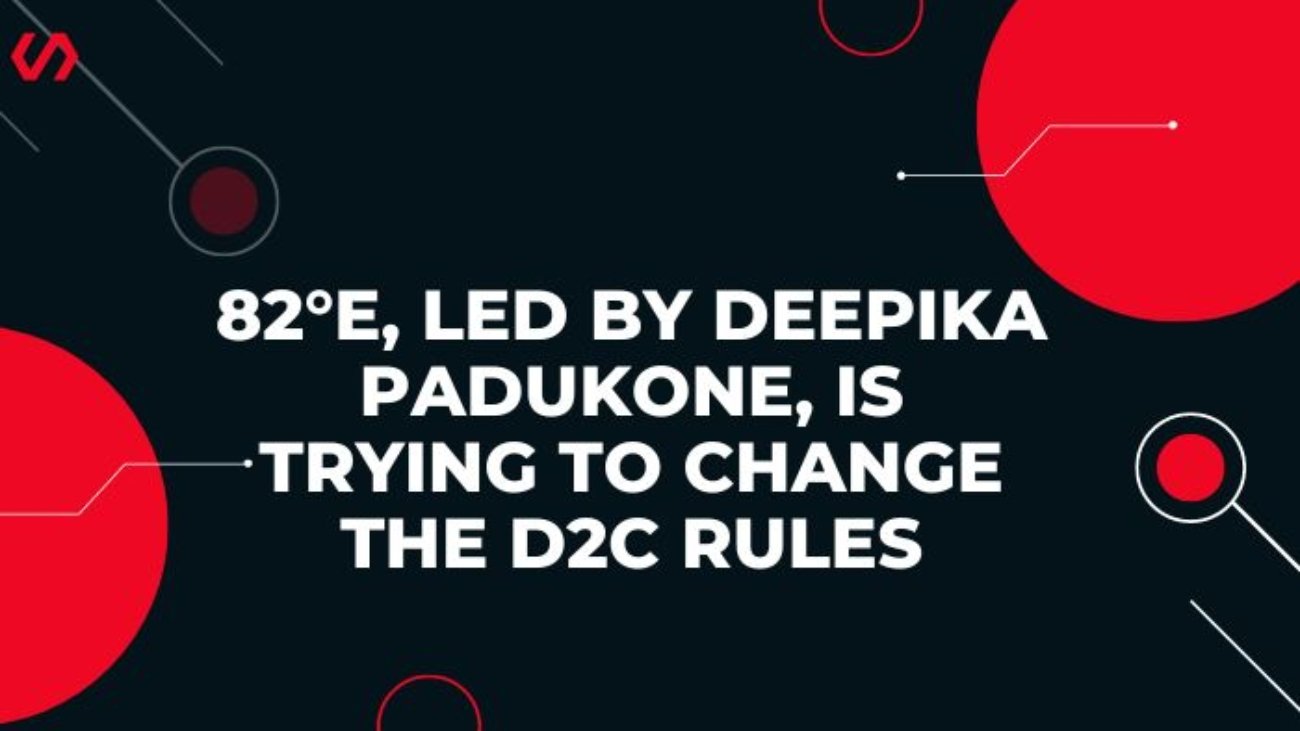82°E is a revolutionary direct-to-consumer model led by Deepika Padukone. It is revolutionizing the way people shop for fashion and lifestyle products, by offering them an immersive shopping experience through its easy to use digital platform. With its unique approach, it is bringing together the best of both worlds – online and offline shopping.
It has created a seamless user experience that allows customers to shop from anywhere in the world while also providing them with personalized services such as in-store styling sessions and virtual try-on options. This revolutionary model has been made possible by leveraging advanced technologies such as artificial intelligence and machine learning. By using these technologies, 82°E is able to provide customers with a highly tailored shopping experience that goes beyond their expectations.
What is 82°E and Its Goal to Transform the D2C Model
82°E is a revolutionary platform that seeks to transform the Direct-to-Consumer (D2C) model. It is an innovative solution that enables companies to better engage with their customers through data-driven insights and personalized experiences.
The goal of 82°E is to provide businesses with the ability to offer customers a more personalized experience by leveraging data and analytics. By doing so, businesses can create more meaningful relationships with their customers, leading to increased loyalty and ultimately, greater profits.
The platform also provides businesses with powerful tools for marketing automation, customer segmentation, and analytics. This allows them to optimize their strategies for maximum efficiency and effectiveness in order to drive sales growth and customer engagement.
The Benefits of Using a Direct-to-Consumer Model and How It’s Changing the Retail Landscape
The direct-to-consumer (D2C) model is revolutionizing the way that companies do business by allowing them to create, distribute, and sell their products directly to customers. This model has opened up a new world of possibilities for retailers, who are now able to offer better customer service and a more personalized shopping experience.
Furthermore, this model allows retailers to reduce costs associated with middlemen and increase margins on their products. As the retail landscape continues to evolve, the use of D2C models is becoming increasingly popular among companies looking for a competitive edge in the market.
How Does 82°E Use Technology to Revolutionize the D2C Model
82°E is a data-driven D2C platform that utilizes technology to revolutionize the traditional D2C model. It leverages the power of data and analytics to provide personalized experiences for customers, enabling them to discover and purchase products from their favorite brands in a more efficient and convenient manner. Its technology-driven approach helps it identify customer preferences, target audiences, and optimize campaigns for maximum ROI.
The platform also leverages AI-powered tools such as natural language processing (NLP) and machine learning (ML) algorithms to generate insights into customer behavior and make better decisions. By using technology, 82°E is able to create an enhanced shopping experience for customers while helping brands reach their desired goals.
What Challenges Does 82°E Face in Implementing Its Vision
82°E is a company that is committed to creating innovative solutions to solve the world’s most pressing problems. The company has a vision of making the world a better place through the use of technology and data. However, there are several challenges that 82°E must overcome in order to implement its vision.
These challenges include developing reliable and secure data infrastructure, finding ways to monetize its services, navigating regulatory and legal issues, and ensuring customer privacy and security. In this article, we will discuss the various challenges that 82°E faces in implementing its vision.
Key points
- Jigar Shah and Deepika Padukone entered the personal care industry as a result of their fame as leading actors and the internet shopping boom brought on by the pandemic.
- In addition to its existing direct-to-consumer (D2C) strategies, it is currently considering expanding its line offline.
- India has a long history of experimenting with celebrity-endorsed goods. Lux was popular in the 1990s, but celebrity-led brands only lately started to appear on the scene, around 2015.
- There are just over 800 D2C brands competing for consumer attention in India alone, opening the door to a market that will be valued just over 100 billion by 2025. Jigar Shah, a seasoned investor, knew of its promise.
- He understood what it would take to turn Deepika Padukone’s fame as an actress into a brand back in 2020 because he had staked on companies like edtech platform FrontRow, luggage maker Mokobara, and SuperTails.
- Every business contacted us because they recognise her worth. We also became aware of and began investigating the celebrity-led brand possibilities at that time,” he continues.
- The two experimented with a variety of concepts, including buying into an existing brand or launching one in conjunction with a marketplace; eventually, they decided to do it alone.
- Deepika Padukone, co-founder of 82°E, states, “When Jigar and I joined forces, our goal was to establish a brand that is an extension of my personal and professional life.
- By many standards, the skincare market is congested. As there were so many copycat brands selling comparable products during the epidemic, it was difficult for customers to choose one to purchase.
- Moreover, Padukone and Shah discovered a chance at this location. There are a tonne of products available. Yet you wouldn’t know if I asked you what products you use every day for skincare, adds Shah.
- The two created a line of items under the brand name 82°E, which was inspired by the longitudes of India. The products were based on a routine Padukone had followed for years. According to Shah, “The narrative of our brand and the items are entirely based on who she is and what she thinks.”
- According to Padukone, “I work closely on all the creative facets of the brand, including ideation, formulations with the R&D team, and packaging. Shah examines the company’s operations, human resources, and financing while doing so.

